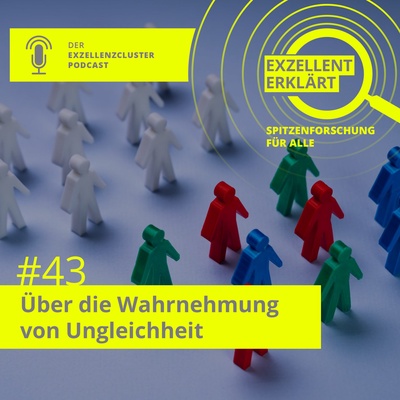The perception of inequality is particularly important where the step from objective problems to political preferences seems illogical from the outside. Why are political redistribution measures often not demanded and supported by those who would benefit most by them? We investigate how inequality is perceived, when it leads to political mobilization, and how selectively politics reacts to it - and thus influences objective inequalities.
The Inequality Barometer is a representative online survey that was conducted in Germany for the first time in 2020. The barometer surveys individual perceptions of different aspects of inequality and social mobility. It also surveys attitudes towards various measures and reform proposals relating to inequality.

Transfer project "Film & Talk"
Sharing insights from inequality research with a wider audience is one of our goals. That is why we developed the “Film & Talk” format: we screen films that explore various aspects of inequality, followed by a panel discussion featuring our scientists, the film’s directors, and persons confronted with the issue at hand in their daily (professional) practice.

Documentary "Ungleichland" by Julia Friedrichs
Is growing inequality tearing society apart? The middle class has been under pressure for years. The majority of wealth is owned by the few. Opportunities and risks are distributed extremely unequally. What is the state of Germany as an unequal country?
On the panel, our journalist-in-residence and director Julia Friedrichs, political scientist Marius R. Busemeyer (University of Konstanz) and activist for wealth justice Stefanie Bremer (taxmenow) discussed with guests from the public.
Click here to watch the documentary in the ARD media library (in German).

Inequality challenges society as a whole, yet it can only be tackled if people perceive it as such. Those affected don’t always recognize a given kind of inequality, and even when it is a well-known circumstance, it might not be questioned or criticized as such. How distinct is social inequality in Germany, and is it even an issue from an individual’s point of view?
Marius R. Busemeyer and Claudia Diehl give an insight into our research "On the perception of inequality" in the podcast "Exzellent erklärt - Spitzenforschung für alle" (in German).


![[Translate to Englisch:] article](/fileadmin/exzellenz/inequality/timeline_pic/02-01.jpg)
![[Translate to Englisch:] article](/fileadmin/exzellenz/inequality/timeline_pic/02-02.jpg)
![[Translate to Englisch:] article](/fileadmin/exzellenz/inequality/timeline_pic/02-03.jpg)
![[Translate to Englisch:] article](/fileadmin/exzellenz/inequality/timeline_pic/02-04.jpg)
![[Translate to Englisch:] article](/fileadmin/exzellenz/inequality/timeline_pic/02-05.jpg)
![[Translate to Englisch:] article](/fileadmin/exzellenz/inequality/timeline_pic/02-06.jpg)
![[Translate to Englisch:] article](/fileadmin/exzellenz/inequality/timeline_pic/02-07.jpg)
![[Translate to Englisch:] article](/fileadmin/exzellenz/inequality/timeline_pic/02-08.jpg)
![[Translate to Englisch:] article](/fileadmin/exzellenz/inequality/timeline_pic/02-09.jpg)